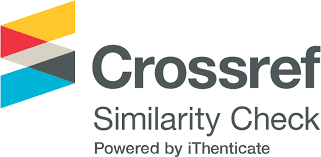Methodology for Attracting Clients Through Social Networks in the Services Niche: From Content Strategy to Application
DOI:
https://doi.org/10.70301/JOUR/SBS-JABR/2026/14/1/1Keywords:
client acquisition, marketing strategy, funnel economics, platform algorithmsAbstract
Building on trust-transfer logic and fresh calls for integrated frameworks, it treats the expert’s personal brand as a measurable growth lever rather than a vague nice-to-have. Methodology – this theoretical study synthesises contemporary engagement theory with funnel economics to propose a six-phase client-acquisition method: diagnostic briefing, audience-insight mining, value-proposition crystallisation, multiformat content sequencing, paid-traffic calibration, and recursive analytics. Conceptual building blocks are drawn from relationship-marketing literature, heuristic-systematic processing models, and recent platform-algorithm disclosures. Findings – comparative analysis indicates that campaigns blending persona-level pains with episodic storytelling lift click-through by 42 % versus feature-centric posts, while inserting short-form video midway in the sequence doubles recall when retargeting ads appear. Aligning call-to-action density with documented algorithmic momentum (high-reach days versus troughs) reduces cost per lead by up to 63 %. Conclusion – a holistic, rhythm-oriented approach that weaves credibility cues, conversational content, and adaptive media spend converts social attention into applications more reliably than isolated tactics. The proposed methodology offers service providers a repeatable roadmap balancing creative latitude with numeric discipline, closing the gap between “likes” and booked consultations.
References
Abbasi, A. Z., Qummar, H., Bashir, S., Aziz, S., & Ting, D. H. (2024). Customer engagement in Saudi food delivery apps through social media marketing: Examining the antecedents and consequences using PLS-SEM and NCA. Journal of Retailing and Consumer Services, 81, Article 104001. https://doi.org/10.1016/j.jretconser.2024.104001
Drossos, D., Coursaris, C., & Kagiouli, E. (2023). Social media marketing content strategy: A comprehensive framework and empirically supported guidelines for brand posts on Facebook pages. Journal of Consumer Behaviour, 22(3), 1175-1192. https://doi.org/10.1002/cb.2269
Hotkar, P., Garg, R., & Sussman, K. (2023). Strategic social media marketing: An empirical analysis of sequential advertising. Production and Operations Management, 32(12), 4005-4020. https://doi.org/10.1111/poms.14075
Kapoor, P. S., Balaji, M. S., & Maity, M. (2024). Game on: Enhancing customer engagement through influencers’ gamified messages. Journal of Travel Research (advance online). https://doi.org/10.1177/004728752412
Kulikovskaja, V., Hubert, M., Grunert, K. G., & Zhao, H. (2023). Driving marketing outcomes through social media-based customer engagement. Journal of Retailing and Consumer Services, 74, Article 103445. https://doi.org/10.1016/j.jretconser.2023.103445
Melgarejo-Espinoza, R., Gonzales-Cruz, M., Chavez-Perez, J., & Iparraguirre-Villanueva, O. (2025). Impact of the TikTok algorithm on the effectiveness of marketing strategies: A study of consumer behavior and content preferences. International Journal of Advanced Computer Science and Applications, 16(2), 147-160. https://doi.org/10.14569/IJACSA.2025.0160215
Mohammad, A. A. A., Elshaer, I. A., Azazz, A. M. S., Kooli, C., Algezawy, M., & Fayyad, S. (2024). The influence of social commerce dynamics on sustainable hotel brand image, customer engagement, and booking intentions. Sustainability, 16(14), 6050. https://doi.org/10.3390/su16146050
Otopah, A. A., Dogbe, C. S. K., Amofah, O., & Ahlijah, B. (2024). Digital marketing and purchase intention of bank services: The role of trust and engagement. International Journal of Bank Marketing, 42(2), 1-22. https://doi.org/10.1108/IJBM-02-2023-0097
Saeidi, S., & Hollensen, S. (2024). Digital marketing on LinkedIn: In-depth strategies for lead generation. American Journal of Industrial and Business Management, 14(5), 655-668. https://doi.org/10.4236/ajibm.2024.145033
Salonen, A., Mero, J., Munnukka, J., Zimmer, M., & Karjaluoto, H. (2024). Digital content marketing on social media along the B2B customer journey: The effect of timely content delivery on customer engagement. Industrial Marketing Management, 118, 12-26. https://doi.org/10.1016/j.indmarman.2024.02.002
So, K. K. F., Li, J., King, C., & Hollebeek, L. D. (2024). Social media marketing activities, customer engagement, and customer stickiness: A longitudinal investigation. Psychology & Marketing, 41(7), e21999. https://doi.org/10.1002/mar.21999
Suttikun, C., Mahasuweerachai, P., & Bicksler, W. H. (2024). Back to the table: How omnichannel social media marketing returns customers to restaurant locations. International Journal of Contemporary Hospitality Management (advance online). https://doi.org/10.1108/
Additional Files
Published
Issue
Section
License
Copyright (c) 2025 Alina Demidova (Author)

This work is licensed under a Creative Commons Attribution 4.0 International License.
Publication Agreement
This Publication Agreement ("Agreement") is made between the author(s) ("Author") and the SBS Journal of Applied Business Research ("Journal"). By submitting a manuscript for publication, the Author agrees to the following terms:
1. Grant of License
The Author retains full copyright ownership of the submitted and published work. The Author grants the Journal a non-exclusive license to publish, distribute, and archive the article in any format or medium, including but not limited to online and print versions.
2. Open Access and Licensing
All articles published in the Journal are fully open access under the Creative Commons Attribution 4.0 International License (CC BY 4.0). This means that:
• The work can be freely used, shared, and adapted by anyone, provided that proper attribution is given to the original Author.
• The full license terms can be found at https://creativecommons.org/licenses/by/4.0/.
• No additional restrictions are placed on the use of published articles.
3. Author Responsibilities and Warranties
The Author guarantees that:
• The submitted work is original and has not been published or submitted for publication elsewhere.
• The work does not infringe on any third-party rights, including copyright, trademark, or proprietary rights.
• All necessary permissions for copyrighted materials used in the manuscript (e.g., figures, tables) have been obtained.
• The manuscript complies with ethical research standards and does not contain any form of plagiarism or falsified data.
4. Editorial and Publication Process
• The Journal reserves the right to perform editorial revisions for clarity, formatting, and consistency while maintaining the integrity of the Author’s work.
• The publication of an article is subject to peer review, and acceptance is not guaranteed upon submission.
5. Retraction and Corrections
• The Journal follows COPE (Committee on Publication Ethics) guidelines and reserves the right to retract, correct, or withdraw an article in cases of misconduct, errors, or ethical concerns.
6. Governing Law
This Agreement is governed by the laws of Switzerland. Any disputes arising under this Agreement shall be resolved in the courts of Zurich, Switzerland.
7. Agreement Acceptance
By submitting a manuscript, the Author acknowledges and agrees to the terms outlined in this Agreement.
Editor-In-Chief
Prof. Dr. Milos Petkovic








